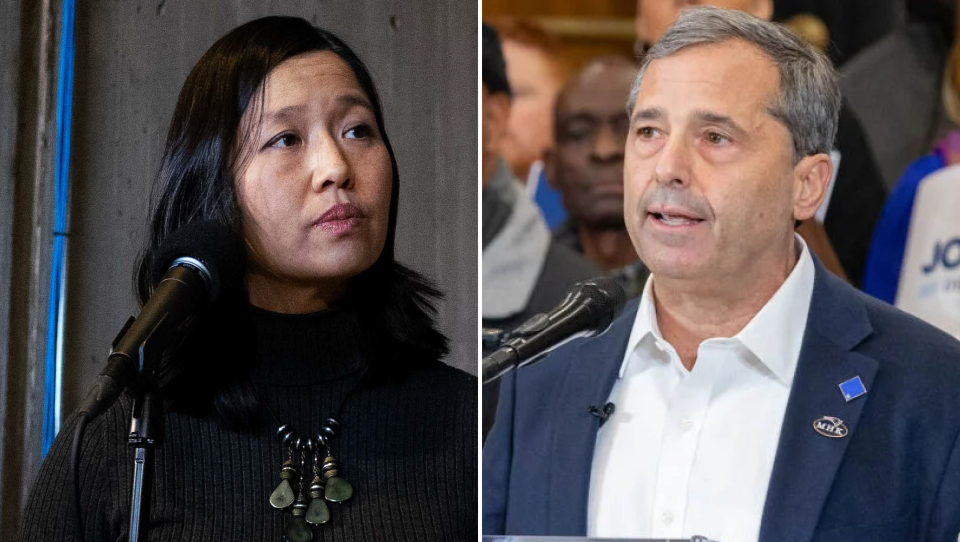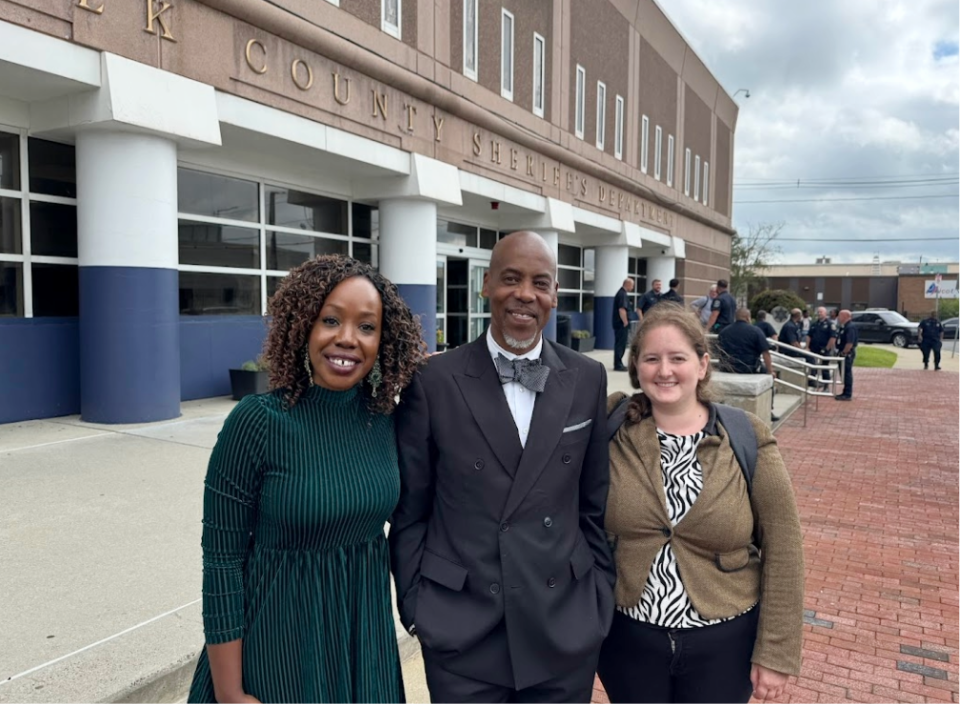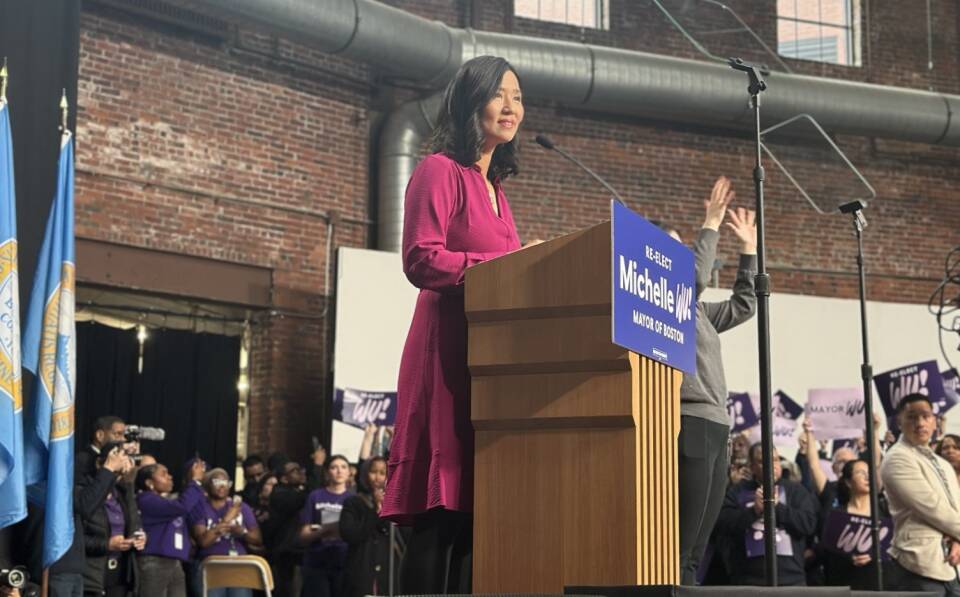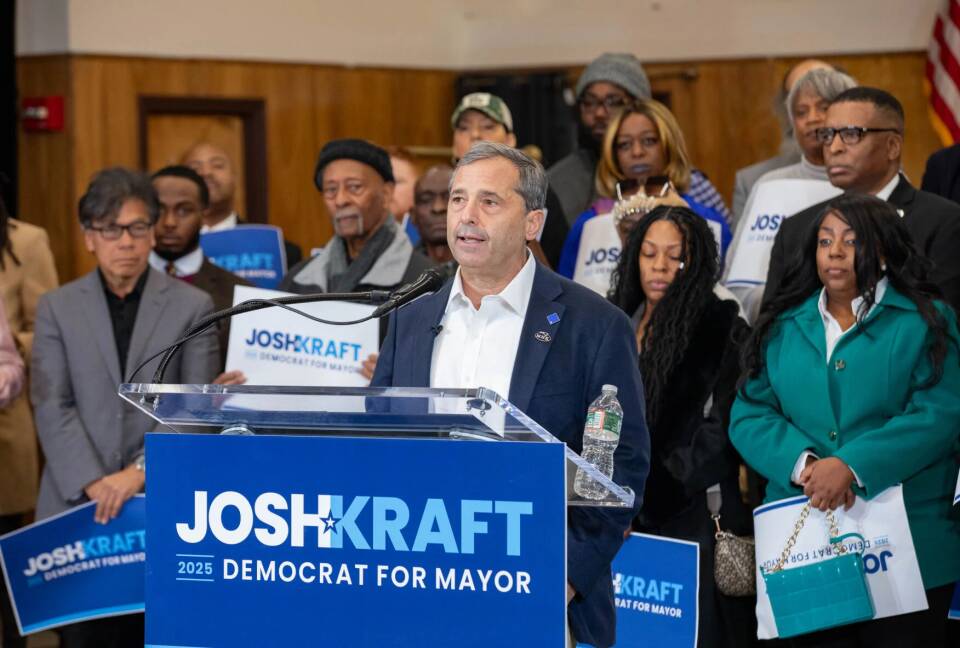Sometime after 8 p.m. Tuesday, we’ll have our best sense yet of just how bleak Josh Kraft’s mayoral prospects are — and a picture of which newbies are most likely to join the Boston City Council next year.
That means, of course, that we’re teetering on the cusp of Boston’s 2025 preliminary municipal elections. These are nonpartisan affairs that occur whenever there are more than twice the candidates running for a particular office than there are spots available. For example: if there are three candidates for one district city council seat, there’s a preliminary election, or prelim for short, with the top two finishers moving on to the final in November; if there are just two candidates (or one), there isn’t.
This year there are prelims in several races, including the most consequential contest on the ballot, Boston’s mayoral race (more on that in a bit).
But not all prelims are created equal when it comes to how interesting they are — and the particular factors that make a contest intriguing vary from race to race.
Here’s a rundown on the big subplots to watch in the 2025 prelims Tuesday:
How big will Michelle Wu’s win be?
Unless recent polling is grievously, shockingly wrong, we know a couple things with near certainty about Tuesday’s mayoral preliminary election.
Of the four candidates, incumbent Mayor Michelle Wu and her best-known challenger, former Boys & Girls Clubs of Boston head Josh Kraft, will get the most votes and advance to November’s final. Perennial entrant Robert Cappucci and activist Domingos DaRosa will likely fall short and fail to advance.
Second, Wu’s win will be big. One relatively recent poll showed her leading Kraft by 30 percentage points; another, which just came out last week, gave Wu a whopping 50-point margin.
There’s no shame in Kraft struggling to make the race competitive. As you’ve probably heard, the last time an incumbent Boston mayor lost was in 1949, when James Michael Curley was ousted by John Hynes after Curley did a stint in federal prison for mail fraud.
But while a 30-point loss would be more or less in the realm of the normal for Boston politics, a 50-point loss would be a historic embarrassment, on par with then-Mayor Tom Menino’s 52-point win over challenger Peggy Davis-Mullen in the 2001 mayoral final.
If Kraft, who’s spending millions of dollars of his own money to finance his campaign, is confronted with a loss of that magnitude in the prelim, might he conclude the race is simply unwinnable and drop out? Or even if he stayed in, would the political press pay a whit of attention to the campaign’s final two months?
Theoretically, at least, Kraft could also lose by an unexpectedly close margin. He recently suggested that lagging Wu by by 15% when the votes are counted would actually be a victory of sorts. Given recent polling, that’s a tough conclusion to argue with. It also seems highly unlikely.
Is a key Wu ally vulnerable in the at-large race?
The at-large contest, which features candidates who run citywide for four spots, is traditionally seen as a sort of proving ground for politicians with bigger aspirations. Before Wu became mayor in 2021, for example, she topped the ticket in the at-large final elections in 2019 and 2017; before Ayanna Pressley was elected to Congress, she topped the at-large ticket in 2011, 2013 and 2015.
This year, all the incumbent at-large councilors are seeking reelection: Ruthzee Louijeune, Julia Mejia, Erin Murphy and Henry Santana.
But the at-large mix also includes Frank Baker, a former Dorchester city councilor who was both one of the council’s most conservative voices and perhaps its sharpest critic of Wu before opting not to seek reelection in 2023. And right now, his best path to victory seems to involve beating Santana — whose résumé includes a stint as the inaugural director of Wu’s Office of Civic Organizing — in the final.
Santana is a Wu loyalist who was elected with her assistance. Earlier this fall, when it seemed Santana might not submit enough signatures to make the ballot, Wu’s campaign machine rode to the rescue — but the mere fact that that assistance was required suggests that Santana is vulnerable.
Keep an eye, in the at-large prelim, on whether Baker gets more votes than Santana. The final verdict won’t be delivered until November. But if Baker outpaces Santana in the prelim, it’ll bode poorly for Santana’s chances in the final.
It might also suggest simmering frustration, at least in some quarters, with the council’s recent willingness to have the conversations Wu wants to have while avoiding the conversations she doesn’t.
Will state receivership of Boston’s elections department make things run smoothly?
In the 2024 election, Boston’s electoral system was a mess. Multiple polling places ran out of ballots, voters were turned away, the city’s election department was unreachable by phone, and Boston Police had to rush ballots to various polling sites with their sirens blaring in an effort to keep people from being disenfranchised.
Now Bill Galvin, the state’s top election official, has placed Boston’s election department into receivership and made a slew of changes aimed at avoiding a similar meltdown this time around. Will they work? We should know long before the votes are counted: polls open at 7 a.m. and don’t close until 8 p.m.
Who will be the finalists for the council’s one vacant seat?
Only one Boston City Council seat is currently unoccupied: District 7, where former incumbent Tania Fernandes Anderson, the council’s first Muslim, first African immigrant and first formerly undocumented member quit after pleading guilty to federal corruption charges.
Eleven contenders are vying to replace her to represent District 7, which includes all or part of Roxbury, Dorchester, Fenway and the South End, and just two will make it to the final election.
The District 7 race has already yielded controversy, with candidate Said Ahmed — a former track and field star turned coach — accused of harassing a neighborhood activist and trying to inappropriately influence people who were voting early. Both Ahmed and another candidate, Said Abdikarim, would be the first Somali Americans on the City Council if elected.
The race also features the Rev. Miniard Culpepper, a longtime local faith leader; formerly incarcerated activist WaWa Bell; formerly homeless person Natalie Juba-Sutherland; and Shawn Nelson, a frequent and extremely vocal critic of Wu who bills himself as an “independent conservative.”
Given the large number of contenders, it’ll take a relatively small share of the vote for the top two finishers to nab those spots and make the final.
Can anything — even rage at Trump — drive up uninspiring turnout?
At least since Wu traveled to Washington earlier this year to testify before the House Oversight committee about Boston Police cooperation, or lack thereof, with federal immigration authorities, she has emerged as one of the Trump administration’s more vocal and eloquent antagonists.
Right now, that dynamic is manifesting itself in an Immigration and Customs Enforcement surge in the Boston area, one that’s getting plenty of attention in local and national media.
In other words, if there were ever a moment that showed how high the stakes can be when it comes to local government, this is it. You might think, or hope, that would be enough to drive up Boston’s traditionally anemic turnout. (In the 2021 preliminary, for example, when voters were picking a new mayor to fill the seat vacated by Marty Walsh, just 25% of voters made it to the polls.)
But other factors might have the opposite effect — like Wu’s enormous lead over Kraft, which could convince some of her supporters to stay home instead of dragging themselves out to their polling places. What’s more, the memories of electoral dysfunction in 2024 remain fresh (see above), which could create another disincentive for people pondering whether to get out and vote or not.
In Western democracies, at least, turnout and civic health are often seen as going hand in hand. What verdict will Tuesday’s election render here in Boston?









